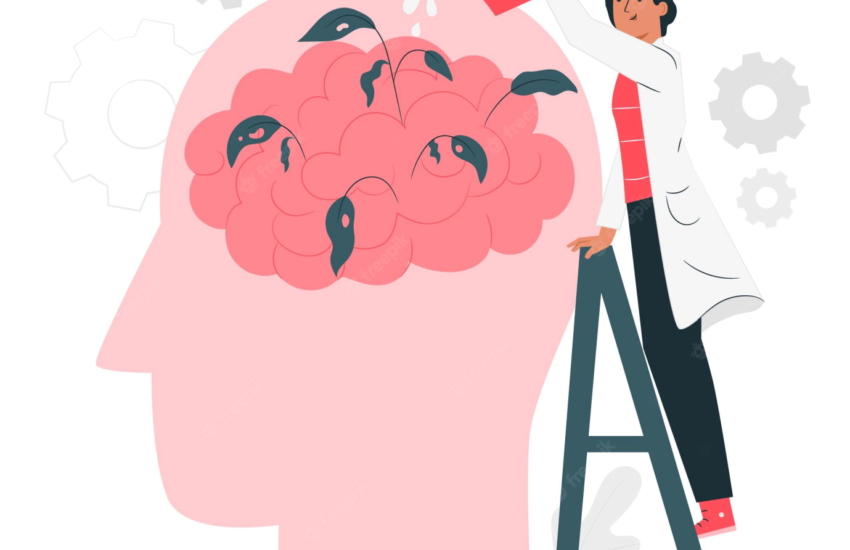Buoyancy is a form of resilience that is specific to minor setbacks and problems. While resilience is usually linked to extreme adversity, buoyancy is focused on the difficulties that we encounter every day. If we are able to cope with everyday challenges and be prepared, we will have the tools needed to cope more effectively with the bigger issues.
When it is about well-being and mental health, we usually assume that it’s something that occurs to us. It is true that we don’t have much or no control over the way we are feeling. However, sometimes there are things that we can take care of. There are a variety of things we can do to take control of the state of our mind and well-being and make us less likely to fall into mental illness and recover more quickly in the event of mental health issues. You can also take Online Counseling from your online counsellor when you feel stuck and unable to recover from your current situation.
Steps to build mental resilience and strength
One way to focus to build resilience and mental energy are to be clear about your core values; determine how you can follow your ideals, and remain focused on the abundance of blessings in your life.
- Find your personal values.
You can respond as an outline, or the form of an explosive chart or even as sentences – whatever is natural to you. What are the most important things to you? What would make you most disappointed? What are the key roles of relationships the most important to you? What character and personal traits do you desire to portray?
- Set your priorities.
Write each value down and put it in a heading, and then write down the way you intend to live the value. What does it look and be like? What impact can it exert on your and your family and friends, if you truly align yourself with this principle?
- Make your daily plans.
Every morning, before getting up, make a note of the goals you set for the day . These will assist you in living your beliefs. It could be about how you talk about yourself and how you speak to others, or actions you’ll engage in. These should be actions that you are going to do rather than things you avoid doing.
- Each night, take a note of minimum 10 items you are thankful for.
These could be huge or small things, relational physical, material or. Whatever it is you are thankful for throughout your day. The things you would be grateful for if lost, you might miss. Follow step 3 and 4 every day until you’ve filled your journal. You can then begin again in step 1 and review your goals and values.
We consider those who are able to handle these circumstances as buoyant since they have a variety of characteristics that offer greater protection against the negative effects of everyday difficulties and setbacks. We typically refer to these characteristics to people who are mentally buoyant.
- Confidence: Self-efficacy is a term used to describe confidence -the confidence that we have of our capability to accomplish a task efficiently. People who have more confidence in their self-efficacy are more likely to stay focused for longer, as they believe they’re able to finish the job. They also think they’ll come back if they fail, and are more likely to persevere when things become difficult.
- Coordination: The tendency to plan, establish goals and manage time, as well as create routines and habits. One who has realistic but difficult goals and consistently strives to achieve these goals will be more likely to stay focused. This helps reduce the tendency to procrastinate, especially when we break goals into smaller goals.
- Control: It is essential to believe that everyone have the power to affect their own outcome, which includes the possibility of failure. In order to control their environment, they can rectify this issue by seeking additional training or seeking advice from people they consider to be more skilled. People who are successful, therefore, can alter their outcomes through changing their behavior.
- Composure: Calmness doesn’t mean that we are free of anxiety as acceptable levels of stress can motivate as well as prepare your body to take the next step. As we progress, putting ourselves in increasingly anxiety-inducing situations can help increase confidence. Higher levels of confidence may reduce anxiety-related feelings. Additionally, breaking anxiety-inducing tasks into manageable chunks can help reduce the stress.
- Commitment: The word “commitment” refers to the ability to persevere and stay to the goal regardless of the fact that it may be challenging. It is linked to the personality traits however, this doesn’t mean we shouldn’t cultivate it with assistance.
- Community: Support mechanisms play a significant aspect in how successful people are, as well as the manner in which they manage setbacks as well as other obstacles that come up daily. Networks of support, whatever form they choose aid in building confidence and provide advice when problems arise.
These six aspects form an idea of resilience in the daily life that considers the individual and social aspects of daily life. Individuals also take help of mental health professional to build their confidence and talk about their concern. Feel free to take Counselling Online from your counsellor in person or through online counsellor about your mental health concern and be mentally resilient in your life.
